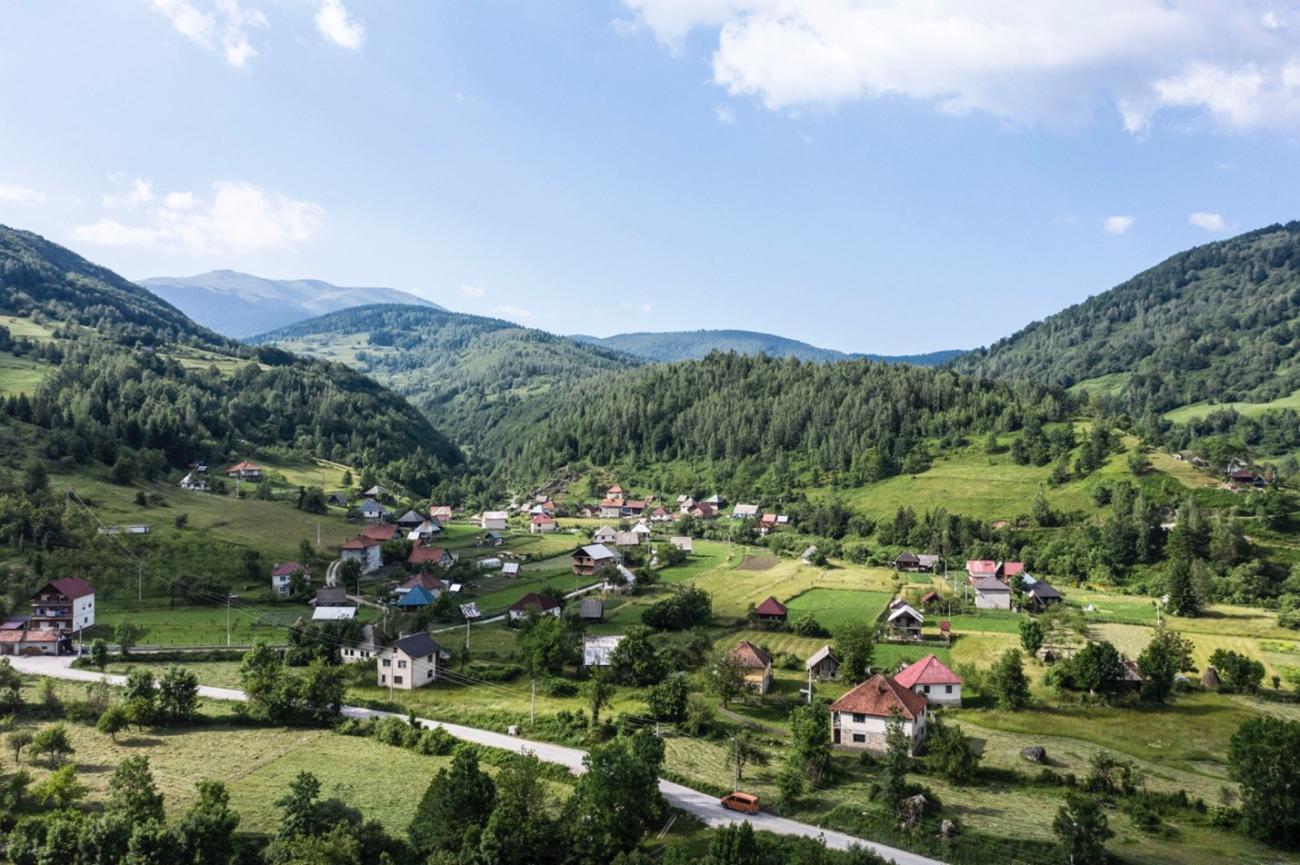FAO works towards building resilience of Montenegro’s agriculture to disasters

Gangi: Agriculture is highly vulnerable to natural hazards and to the impacts of climate change.
30 June 2022 - Podgorica, Montenegro
At a hybrid meeting today, Miroslav Cimbaljevic, Director General for Department of Agriculture, Ministry of Agriculture, Forestry and Water Management, and Nabil Gangi, FAO Deputy Regional Representative for Europe and Central Asia joined key experts to discuss main findings and recommendations of the updated comprehensive analysis on the disaster risk reduction system for Montenegro’s agriculture.
The initial baseline study was conducted in 2016–2017 as part of a regional Technical Cooperation project titled “Enhancement of disaster risk reduction and management capacities and mainstreaming climate change adaptation practices into the agricultural sector in the Western Balkans”.
The Government of Montenegro recognizes the importance of improving disaster risk reduction and climate change adaptation. For this reason, integrating these areas into sector development planning should become a priority, eventually through the Agricultural Development Strategy, currently in preparation. As that this approach requires continuous work, improvement, and exchange of experiences and good practices with other countries of the region, FAO’s support is an important part of this process.
The updated study for Montenegro reviews the current status of disaster risk reduction, early warning systems and agro-meteorology services in agriculture, including legislation, policies, institutional capacities and services related to the disaster risk reduction system with particular focus on the agriculture sector, and assesses the gaps and needs to improve and strengthen these areas. How to enhance and modernize these areas was central in the discussions today. The critical role of data collection for evidence building and risk-informed policy decisions were also emphasized along with improved coordination at the various levels for disasters risk reduction, response and recovery within and across sectors.
“Agriculture is highly vulnerable to natural hazards and to the impacts of climate change, due to the climate sensitive nature of the sector; it also significantly contributes to climate change through greenhouse gas emissions generated from its livestock, crop production and other land uses,” said Nabil Gangi.
“With climate change, it is expected that there will be an increase in the frequency and intensity of extreme weather events, hence, it is crucial to promote the adoption of agricultural good practices that respect the environment, reduce the depletion of natural resources and biodiversity loss, mitigate the impact of extreme weather events and lead to sustainable and resilient agrifood systems. FAO is committed to support Montenegro in this direction,” said Nabil Gangi.
Montenegro is exposed to various types of natural hazards, including (flash) floods, landslides, droughts and forest fires that put people at risk and can cause considerable damage that may undermine the country’s economic development. Due to the country’s vulnerability to natural hazards as well as environmental issues, including land degradation, soil erosion and desertification caused by human activities, the country is highly sensitive to the adverse impacts of climate change.
It is expected that, due to climate change, the average annual rainfall is will decrease, especially during the summer months, while the average annual temperatures will increase. As a result, droughts and floods are expected to increase in frequency. Agriculture and in particularly smallholder farmers and rural communities are vulnerable as they rely on the sector for their food, income, and livelihoods.
Thus, meeting participants also stressed the importance to further improve the existing methodology for post-disaster need assessment, and to be aligned with the standards developed by the United Nations Development Group, World Bank, and the European Union, as well as the application of FAO’s agricultural damage and loss assessment methodology to help track progress of the Sendai C2 indicator on direct agricultural loss attributed to disasters, and the corresponding Sustainable Development Goal (SDG) indicator 15.2 ‘Direct economic loss attributed to disasters in relation to global gross domestic product’.
The analysis is part of a series of country baseline studies on disaster risk reduction system in the agriculture sector, conducted by FAO. Other countries included in the study series are Albania, Armenia, Azerbaijan, Belarus, Bosnia and Herzegovina, Georgia, Kazakhstan, Kyrgyzstan, Republic of Moldova, North Macedonia, Serbia, Tajikistan, Turkey, Turkmenistan, Ukraine, and Uzbekistan. The study was conducted under the FAO Regional Initiative on managing natural resources sustainably and preserving biodiversity in a changing climate.







